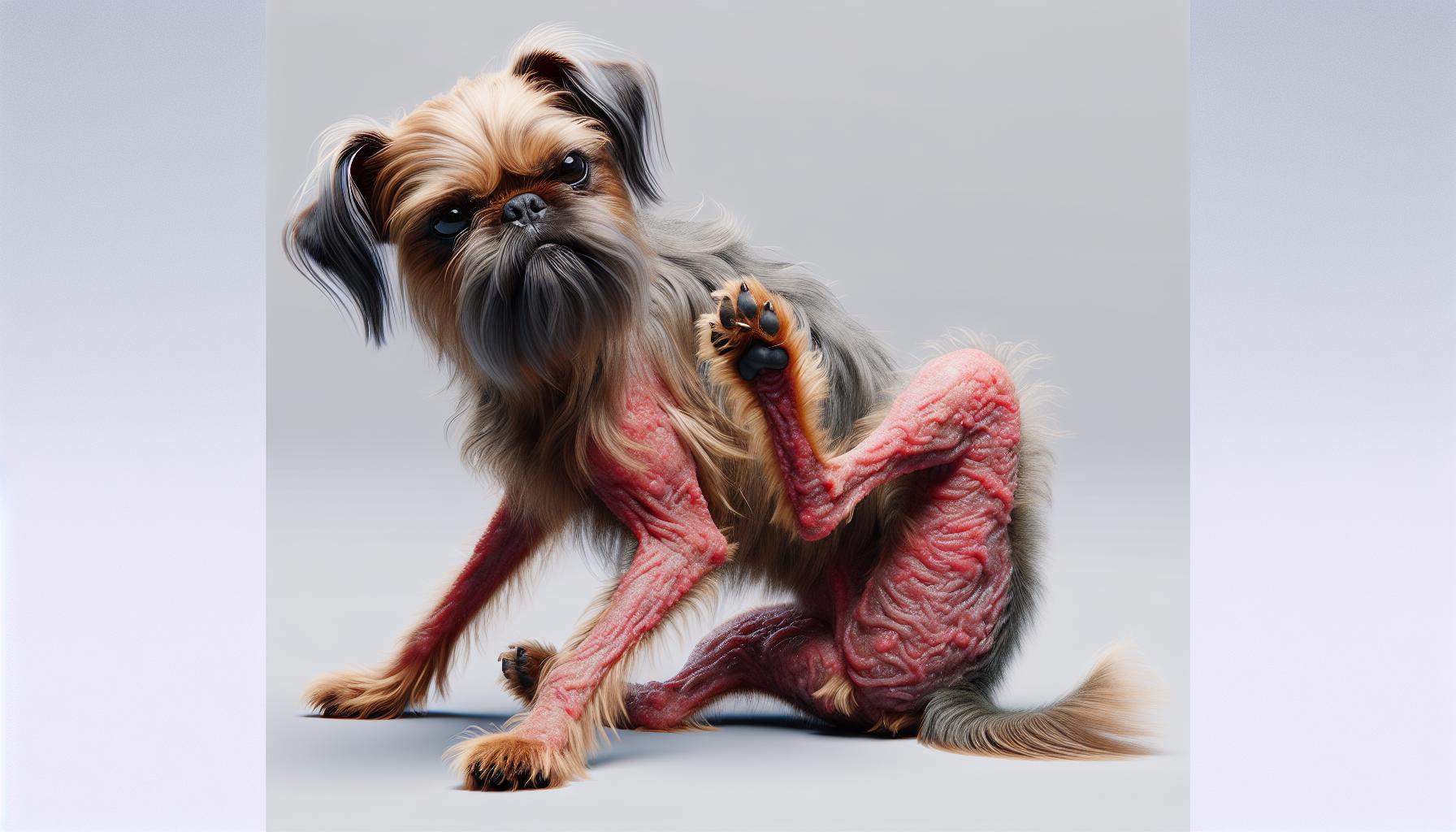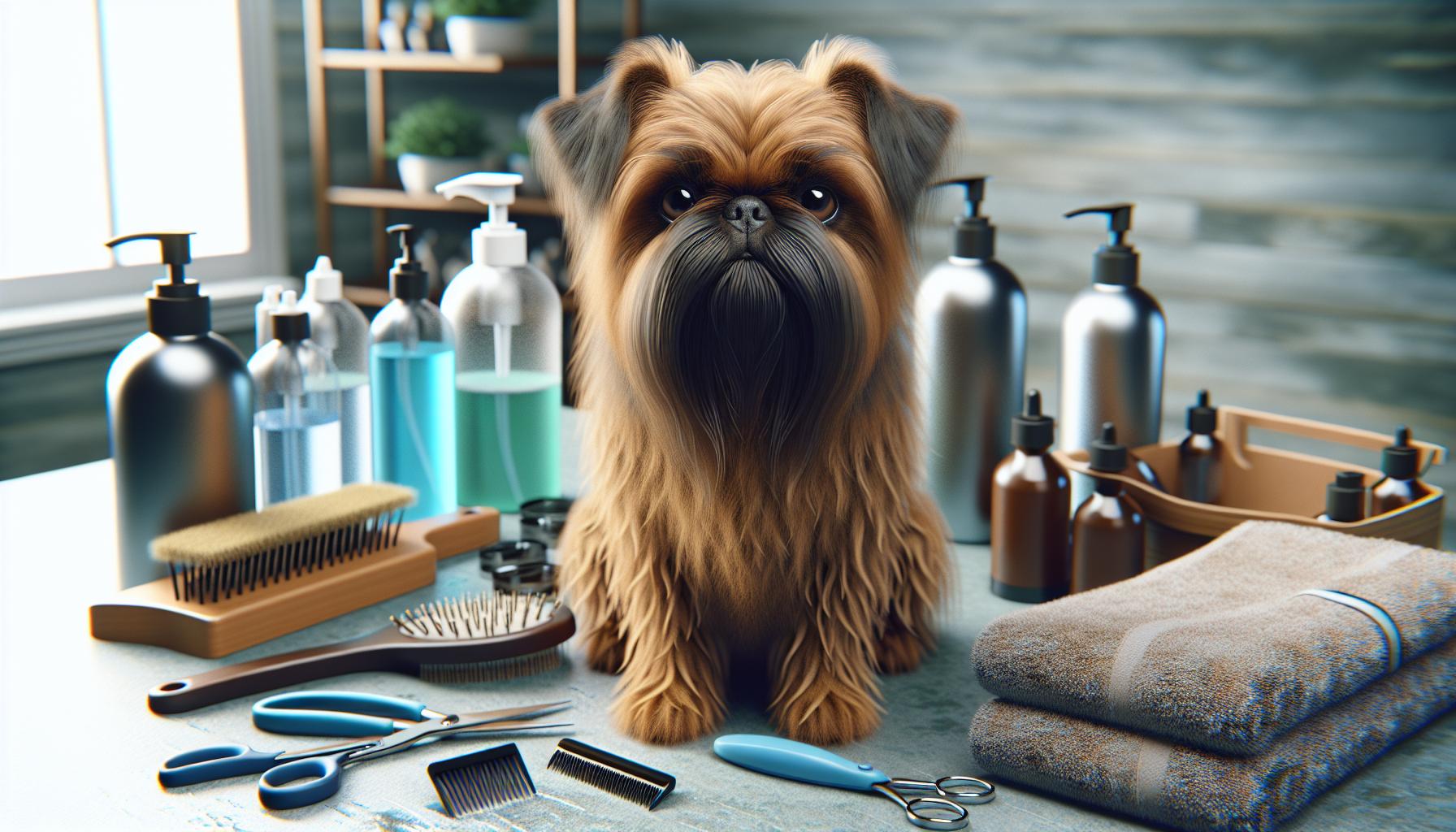If you’re the proud parent of a Brussels Griffon, you know these little dogs pack a lot of personality into a small package. But did you know they can also be prone to allergies? It’s true, and it’s something you’ll want to stay on top of to keep your furry friend happy and healthy.
Managing allergies in Brussels Griffons doesn’t have to be a daunting task. With the right approach, you can help your pup lead a comfortable life, free from the itches and irritations that allergies can bring. Let’s dive into some essential tips and tricks to keep your Griffon’s allergies in check.
Understanding Brussels Griffon Allergies
When you’re diving into the world of canine allergies, it’s crucial to understand that Brussels Griffons, like many other breeds, can suffer from various types of allergies: food, environmental, and contact among the most common. Knowing the specifics can help you identify and manage your pet’s symptoms more effectively.
Food allergies in Brussels Griffons often manifest through skin irritations, digestive issues, or respiratory distress. Common culprits include beef, dairy, wheat, and chicken. On the other hand, environmental allergies are triggered by factors like pollen, dust, and mold. You might notice your Griffon sneezing more than usual, or they could have watery eyes, especially during certain times of the year. Lastly, contact allergies are less common but can occur when your pet comes into contact with substances like household cleaners, fabrics, or even certain types of grass.
Identifying the type of allergy your Brussels Griffon is facing is the first step towards relief. Look out for symptoms like excessive scratching, biting, or licking of the skin, ear infections, runny nose, or watery eyes. These signs can help you pinpoint the allergy type, leading to more targeted and effective treatment options.
It’s also worth noting that some allergies might develop over time, so even if your Griffon hasn’t shown signs in the past, it doesn’t mean they’re immune. Regular check-ups with your vet can help catch any new allergies before they become a significant issue.
By staying vigilant and working closely with your vet, you can manage your Brussels Griffon’s allergies and ensure they lead a happy, comfortable life.
Common Allergens for Brussels Griffons

Identifying the common allergens that can cause discomfort for your Brussels Griffon is a crucial step in managing their allergies effectively. Knowing what to look out for will help you better protect your furry friend from unnecessary exposure and discomfort.
Food Allergies are quite common among Brussels Griffons. The culprits can range from specific proteins to more generic ingredients found in commercial pet foods. Some of the most common triggers include:
- Beef
- Dairy
- Chicken
- Wheat
- Corn
Monitoring your dog’s response to certain foods can help pinpoint the exact cause. Sometimes, switching to a hypoallergenic or limited-ingredient diet may be necessary to avoid these allergens.
Environmental Allergens play a significant role in triggering allergic reactions. These can be more challenging to avoid, as they include:
- Pollen from trees, grass, and weeds
- Dust mites
- Mold spores
- Flea bites
Regular cleaning and grooming can minimize exposure, but some situations may call for medication or allergy shots to manage symptoms.
Contact Allergies, though less common, are also a concern. These are reactions to direct contact with allergenic substances, such as:
- Cleaning products
- Fabrics (particularly synthetic ones)
- Rubber and plastic materials
Using natural and hypoallergenic products in your home and for your Brussels Griffon’s bedding and toys can significantly reduce the risk of contact allergies.
Being vigilant about the foods, environments, and products your Brussels Griffon interacts with is essential. While completely avoiding allergens may not always be feasible, understanding and minimizing exposure can go a long way in managing your pet’s allergies. Experimenting with different diets and environments under your vet’s guidance can help create a comfortable lifestyle for your Brussels Griffon.
Symptoms of Allergies in Brussels Griffons

Recognizing the signs of allergies in your Brussels Griffon is the first step toward providing them relief. Common symptoms can range from mild to severe, affecting their skin, digestive system, and overall comfort. It’s crucial to keep an eye out for these indicators to act swiftly.
Skin Issues
Allergic reactions often manifest through the skin. You might notice your Brussels Griffon scratching more than usual, or you could spot red, inflamed areas on their skin. These symptoms are typically signs of discomfort caused by environmental allergens or even certain foods. Here’s what to look for:
- Excessive scratching or licking
- Red, inflamed skin
- Hives
- Hair loss in severe cases
Digestive Disturbances
Food allergies can directly impact your dog’s digestive system, resulting in symptoms that are hard to miss. If your Brussels Griffon has developed an allergy to a specific food ingredient, you might observe:
- Vomiting
- Diarrhea
- Increased flatulence
- Loss of appetite
Respiratory Symptoms
Though less common, some Brussels Griffons might display respiratory issues due to allergies. Environmental triggers like pollen can lead to:
- Sneezing
- Coughing
- Wheezing
- Difficulty breathing in severe cases
Monitoring your Brussels Griffon closely for these symptoms provides critical insights into their health and well-being. Each symptom can vary in intensity, so it’s important not to overlook even the slightest change in their behavior or physical condition. Immediate action and consulting with a veterinarian can lead to a swift diagnosis and a tailored plan to manage these allergies effectively.
Tips for Managing Your Griffon’s Allergies

Managing allergies in your Brussels Griffon can be a challenge, but with the right approach, you can significantly ease their discomfort. Allergies can’t be cured, but their symptoms can be managed successfully. Here’s how you can make life better for your four-legged friend.
First and foremost, Identify the Allergen. It’s crucial to work with your vet to pinpoint what’s triggering your dog’s allergic reactions. This may involve food trials, elimination diets, or environmental changes to determine the cause. Once identified, avoiding the allergen is the best strategy.
Improve Their Diet plays a significant role in managing allergies. Opt for high-quality, hypoallergenic dog food that supports skin health and boosts the immune system. Adding omega-3 fatty acids to their diet can also help reduce inflammatory responses.
Regular Bathing and Grooming are indispensable in keeping allergens at bay. Specially formulated shampoos can relieve itchy skin and reduce allergic reactions. Make sure the bathing routine suits your dog’s needs without over-drying their skin.
Consider Medication and Supplements only as recommended by your vet. Antihistamines, corticosteroids, or immunotherapy might be advised in severe cases. Additionally, supplements such as quercetin, a natural antihistamine, can support your dog’s allergy management.
Create an Allergen-Free Environment as much as possible by regularly cleaning your home, using air purifiers, and avoiding smoking around your pet. Simple changes such as changing air filters or using hypoallergenic bedding for your Griffon can make a big difference.
By taking these steps, you’re not only alleviating symptoms but also enhancing your Brussels Griffon’s overall quality of life. Remember, managing allergies is a continuous process that requires patience and attention to detail. Keep a close eye on your dog’s reactions and adjust the management plan as needed with your veterinarian’s guidance.
Conclusion
Managing allergies in your Brussels Griffon doesn’t have to be a daunting task. With the right approach and a bit of patience, you can significantly improve your furry friend’s comfort and wellbeing. Remember, it’s all about teamwork between you and your vet to pinpoint what’s causing the trouble. By tweaking their diet, keeping up with grooming, and possibly introducing medications or supplements, you’re on the right path. And don’t forget, creating a clean environment plays a huge role too. Adjustments might be needed along the way, but seeing your Griffon happier and healthier makes it all worth it. Keep up the great work, and your pup will thank you in their own special way!
